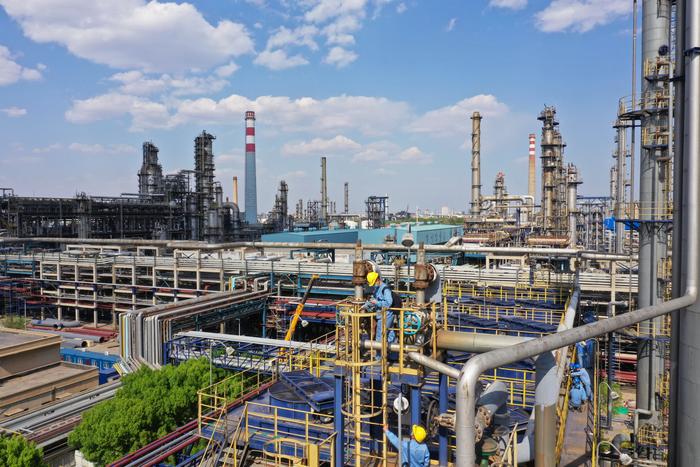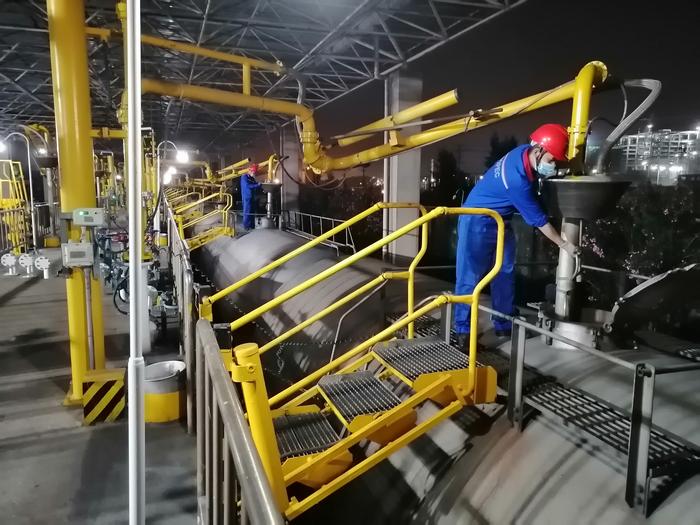|
| 2020-05-28 来源: 中国石化新闻网 |
| 石化新闻 |
|
中国石化新闻网讯 据5月27日Neftegaz.Ru消息:近日,俄罗斯政府门户网站发布了一项法令,禁止进口包括汽油、柴油和喷气燃料在内的成品油,以保护其炼油行业免受廉价进口的影响。该禁令将一直持续到10月1日,以保障俄罗斯联邦的能源安全和稳定国内燃料市场。 俄罗斯自4月初以来一直在考虑这一措施,当时油价暴跌,导致俄罗斯境外的成品油价格大幅下滑。然而,加拿大皇家银行上月报告称,在俄罗斯,由于监管性质,燃料价格并没有太大变化。 据塔斯社援引俄罗斯能源部长亚历山大·诺瓦克的话说,禁止燃料进口的目的是保护俄罗斯炼油行业的就业机会。由于封锁,俄罗斯加油站对石油产品的需求下降了40-50 %。 诺瓦克还表示,禁令措施是一项“强制性的、并非真正以市场为基础的”政策,哈萨克斯坦等其他国家也采取了这一政策。 俄罗斯石油生产企业也受到了石油需求下降以及从4月到5月将该国的石油总产量削减200万桶/天的压力。作为欧佩克+协议的一部分,俄罗斯的石油巨头正在寻求政府的让步,以帮助他们度过低油价时期,并尽可能减少损失。 冯娟 摘译自 Neftegaz.Ru 原文如下: Russia bans all oil product imports to protect its refining industry Russia is banning imports of refined oil products, including gasoline, diesel, and jet fuel, to protect its refining industry from cheap imports, according to a decree published on Russia’s government portal on May 25, Oilprice reported. The ban will be in effect until October 1, and includes a ban on imports of gasoline, diesel, jet fuel, and gasoil, to ensure the energy security of the Russian federation and stabilize the domestic fuel market, the government says in the decree. Russia has been considering this measure since early April, after oil prices crashed and led to much cheaper refined oil products outside Russia. In Russia, however, the price of fuels didn’t change much because of the nature of its regulations, RBC reported last month. In addition, fuel demand in Russia has plummeted because of the self-isolation and lockdowns to curb the spread of the coronavirus pandemic in the country, which reported this weekend its highest daily death toll so far. The Russian energy ministry has been considering the ban for more than a month, and proposed the move to the finance ministry at the end of April. According to Energy Minister Alexander Novak, quoted by TASS in April, the ban on fuels imports is aimed at preserving jobs in the Russian refining industry. De-mand for oil products at Russia’s gas stations crashed by 40-50 % because of the lockdowns, Novak said. The measure to ban fuel imports is a “forced and not really market-based” policy, which other countries have also introduced, such as Kazakhstan, Novak said last month. Russia’s oil-producing companies are also squeezed by the falling oil demand and the need to cut total oil production in the country by 2 million bpd from April to May as part of the OPEC+ deal. The oil majors in Russia are seeking concessions from the government to help them ride out the period of low oil prices with the least damage possible.
|








